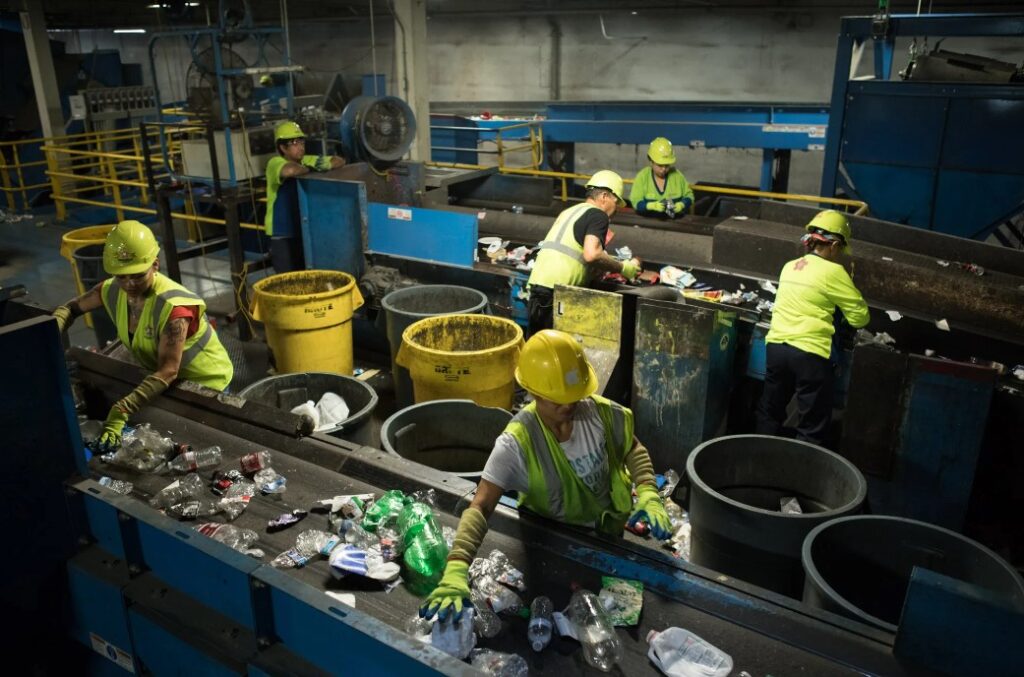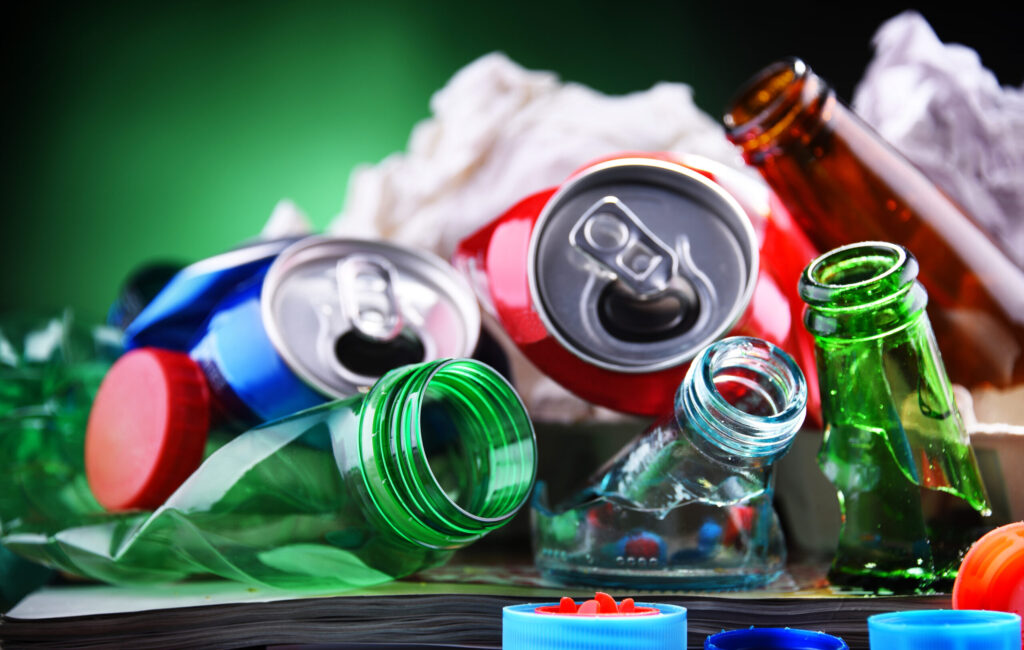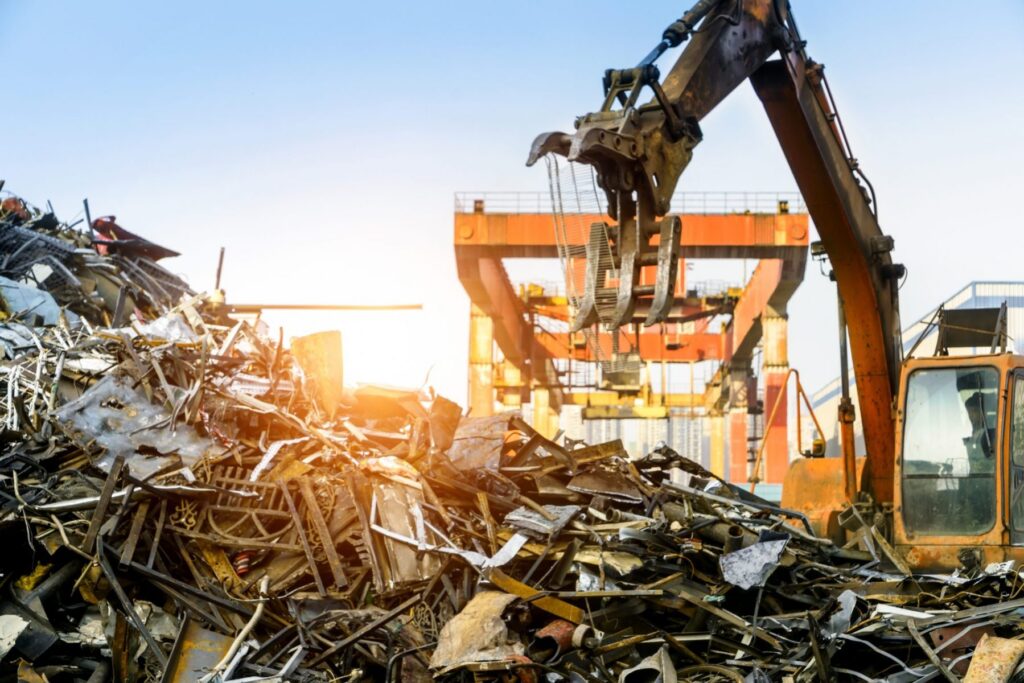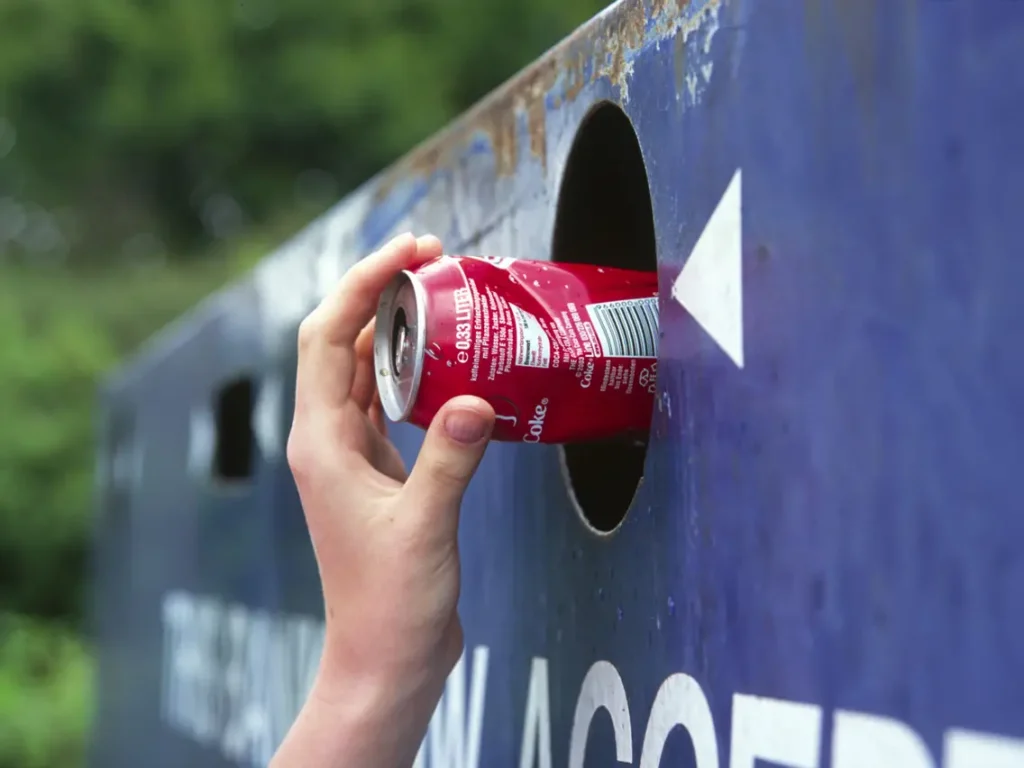Recycling is one of the best processes that human beings have invented. It can make a positive impact on the world that we live in. We all have learned about the three “R’s” (Reduce, Reuse, and Recycle) in our schools, yet when we grow up and have to clean out our own “messes!” we flail around trying to think how to clear and sort out the trash.
If you also need help figuring out and need help to sort out which materials to recycle and which not to, then read on ahead to learn more!
Hiring Outside Help

Source: sanantonioreport.org
While many of you have come here to read about recycling materials in our households, some of you might need to clear out your places or are starting your business and need to dispose of a large quantity of waste.
In such cases, it might be a better idea to hire services/or outsource disposal services that clear your trash for you. You can search for a recycling center near your place and contact them to learn more about the disposal methods and services and get free advice for sorting out your trash correctly.
Without further ado, let’s dive into what materials can be recycled and what not from our everyday household.
Recycling In Your Vicinity
knowing what can be recycled and what cannot is essential to keeping your city’s waste management systems running smoothly. When you are throwing out garbage, it is imperative to sort it out according to your city’s MRF (Material Recovery Facility) guide. In doing so, you ensure the materials are brought to the proper site for recycling.
It is commonly said, “What’s recyclable in one neighborhood could be trash in another.”
Thus, it’s essential to know that you are following the proper guidelines your city’s management sets.
What Materials To Recycle And What Not to?

Source: 225batonrouge.com
1. Small And Thin Plastics
Non-recyclable but corresponds with your city’s waste management body. While small and flimsy plastics are hard to recycle as they get caught in the recycling equipment, gears, and belts, they can be reused.
Small plastic satchels, single-use packets, small containers (4 inches and shorter), contact lens cases, pill packaging, plastic tampon applicators, etc., are not recyclable. But some of these might be reusable, so it is best to contact your nearest recycling centers to know more about them.
2. Pliable Packaging
Plastics such as potato chip packs or chocolate wrappers are not recyclable. This is because they are too thin and can get mixed up with paper or get inaccurately sorted, affecting the whole batch as unsellable.
To date, there has yet to be a market for using such ilks of plastics. Most plastic wrappers, such as chip packs, are banded with aluminum and vividly color printed. However, isolating the print and extracting the aluminum from the plastic is difficult.
If you still don’t feel comfortable throwing such plastics away ( because we don’t as well! ), sometimes these are used in modern artworks. So you can contact local galleries or put out word social media for artists to see if they require these wrappers.
3. Paper And Glam Magazines
Paper, as we all know, is the most reusable material. It accounts for one-third of all municipal waste.
Some of you may be concerned about whether the high-end glossy finish glam magazines and adverts can be reclaimed or not. Let me reassure you there is no issue in recycling these types of papers.
4. Metals And Steel

Source: belsonsteel.com
All metals ferrous such as iron and steel, or non-ferrous, like brass, copper, and stainless steel, are materials that can be reclaimed.
The quality of the metals remains the same on repurposing metals, which is why it is one of those materials mainly repurposed on an industrial scale. Businesses in the transport industry benefit significantly from reusing metals rather than mining them.
5. Beverage And Other Bottles
After taking off the films and stickers on the bottles, all are recyclable. Plastic bottles are the most common recyclable materials. These don’t flatten and are firm, so they do not have a chance to be mixed up with other materials.
As for the caps for such bottles, the bigger and heavier ones are fine, but recycling the smaller ones is sometimes a problem. Some recycling centers want people to keep them on the bottle, while some instruct them to take them off the bottle. As such, it is best to contact your local sorting facility or MRF and ask them for precise instructions.
6. Polystyrene Foam Containers
These are recyclable materials, but only with specialized machines. Polystyrene is a polymer composed of a liquid hydrocarbon commercially fabricated from petroleum and monomer styrene.
These can be melted at high temperatures and repurposed and resolved. But before doing so, it is crucial to remove all air from polystyrene foam containers. Before you sort these materials, it is best to ask whether your city’s recycling centers have the required machinery.
7. Aluminum Cans

Source: businessinsider.com
These are 100% recyclable materials and can be repurposed again and again. Recycling used aluminum requires 95% less energy than making one, making them the most recyclable material. With the amount of aluminum used in our food industry exclusively, we can remake every single commercial flight in our country by just collecting them for four months.
8. Glass And Electronics
One of the biggest challenges while disposing of the waste is to throw out our electronics and glassware like light bulbs or recycle them. While glass is 100% recyclable and does not lose piousness like metals, there are grades in which glass is recycled, such as jars and bottles, windows, mirrors, computer/tv screens, etc. It is also sorted into colored and non-colored categories.
Electronic device recycling is specialized like polystyrene. Since all electronic devices are composed of various materials, it is a complex and time-consuming process, unlike paper and wood, both renewable materials. Parts of your phone, refrigerators, computer, and batteries are usually repurposed.
Conclusion
Many materials fit into the category of the three “R’s. Within our own house, we can find many such as mattresses, hangers, kitchen mixers, pots, pans (after removing the Teflon coating), keys, corks, lights, hearing aids, a few of your cosmetics, backpacks, etc. So start sorting your trash. Remember that it only takes a few minutes and a little motivation by which you can create a positive impact on the environment!
So do not hesitate, and encourage your neighbors as well.





















